Keyword research lays the foundation for effective SEO. High ranking keywords will drive more traffic to your website from search engines. Keywords will help drive your content strategy and even the architecture of your website. To make sure you are generating the organic traffic you require, you must know how to do keyword research before anything else.
Low search volume which leads to less traffic. If you don’t do thorough keyword research, you will fall behind competitors who are savvier with SEO. Issues that could produce poor search results include:
- A high competition which makes it challenging to rank on the SERP
- Irrelevance to the actual content
- Incorrect use of primary and secondary keywords which leads to poor SEO optimization
This is why it's important for you to know about keywords and how to do keyword research. As a part of this article, let’s first learn some basics of keywords.
Types of Keywords
There are generally two types of keywords — short tail and long tail. Depending on the nature of your content, you need to choose the keywords accordingly with an appropriate balance of usage. If your goal is to bring in more traffic to your pages, you can use short-tail keywords. If your goal is to promote targeted pages, like a blog post about making pizza, for instance, you might consider using long-tail keywords.
What are some of the main differences between short tail and long-tail keywords?
|
Short tail keywords |
Long-tail keywords |
|---|---|
|
Not specific |
Very specific |
|
Contains less than three words |
Includes three or more words |
|
High search volume |
Low search volume |
|
High competition |
Low competition |
|
Lower conversion rates |
Higher conversion rates |
|
E.g., Pizza recipes |
E.g., Homemade pizza dough recipes |
Google Ads Keywords Planner
With Google Ads Keyword Planner, you can compare several different metrics of both short and long-tail keywords. The data spans over the past twelve months and includes average monthly search volume, among others.
Let’s start with average monthly searches and volume. Back to pizza, you can compare the average monthly search volume of “pizza recipe” (short tail) and “homemade pizza dough recipe” (long-tail). Note that Google includes close variants in the total number, like “pizza recipes” and “homemade pizza dough recipes” in the totals. Through the interface, you can see the 12-month average, or drill down into a specific month where you will see fluctuations.

Factors for Keywords Research in Google Ads Keyword Planner
There are many factors that you can consider while doing keyword research, but some of the important ones are:
- Search volume
- Competition
- Relevancy
- Commercial intent
Search Volume
Search volume is the average monthly searches made for a specific keyword or phrase. It is a good indicator of the traffic that you will be able to obtain — with higher search volume; there is more opportunity for traffic.
Search volume has a seasonality factor as well. There can be trending keywords based on seasons which will have little to no relevance once that season has passed. For example, “funny Halloween costumes” will have a higher search volume in October.
Competition
Another thing that affects your ranking for keywords is competition. Typically, the higher the competition, the more challenging the ranking process will be. While doing keyword research, you should look for the ones that get high volume and have low competition.
The competitive score, aka “keyword difficulty,” of a keyword ranges from 0 to 100 in Google’s keyword planner.
|
Range |
Difficulty |
|---|---|
|
0 - 29 |
Easy |
|
30 - 49 |
Medium |
|
50 and above |
Hard |
To figure out which keyword is most competitive, you can search for your potential keywords in Google, and look at the total number of results below the search box. Your initial search will include way too many irrelevant results. For example, a search for “pizza recipe” will consist of things like “easy pizza recipes.”

Allintitle: Pizza Recipe
To isolate “pizza recipe” (remember the plural variant is included, too), refine your search by typing:
You should do this for both the short tail and long-tail keywords to help you pick the primary one. Enter the refined results in a spreadsheet along with the volume for the two keywords you are comparing. (Note: you should always do this with multiple relevant keywords). Then you should calculate the ratio of volume to the competition. In the example below, you will see that the longer tail keyword is the better choice.
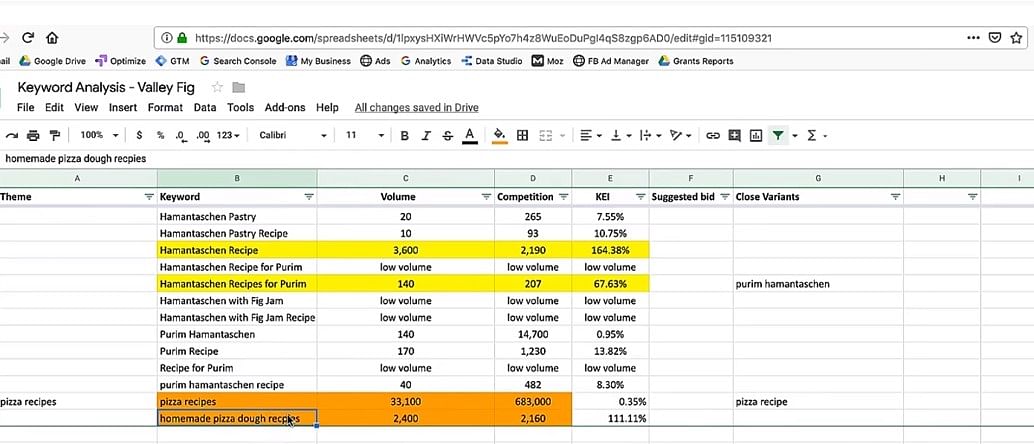
Relevancy
It is important to choose keywords that are relevant to your content. Even though some keywords may not have a high search volume, they will bring quality traffic to your website. For example, if you have a beginner content on SEO, prefer to use relevant keywords such as ‘SEO tutorial’ or ‘What is SEO,’ instead of focusing on irrelevant keywords with high search volume such as ‘What is digital marketing.’ Relevancy always beats the competitive ratio.
Commercial Intent
Keywords with commercial intent are meant to get you to do something or drive higher conversion rates. They are intended (pun was also) to get people to “buy” something, “register” for something, and so on. These types of keywords are useful for eCommerce sites were making a purchase is a whole point. Other common commercial intent keywords are those related to discounts, deals, coupons, and shopping.
Primary and Secondary Keywords
Every webpage should have a primary and secondary keyword or multiple secondary ones. Secondary keywords need to be related to the primary keyword and should also help improve ranking. For instance, you chose a primary keyword that doesn’t have the optimal volume to competition ratio. But it is more relevant to the context of your content, your supporting secondary keywords should help improve SERP ranking.
For example, if you have a blog about healthy diet tips, you might choose your primary and secondary keywords as:
|
Primary keyword |
Healthy diet plan |
|---|---|
|
Secondary keywords |
a healthy diet for weight loss healthy diet food healthy meal plans diet plan weight loss |
Alternative Suggestions to Keyword Research
Aside from Keyword Planner, there are other methods and sources for keyword research.
LSI Keywords
LSI (Latent Semantic Indexing) keywords are linked semantically to your primary keyword. Like secondary keywords, they help drive more relevant traffic to your page. Look for LSI keywords at the middle and bottom of the SERP.

LSI keywords also help search engines understand the relevance of your content. For example, if you have a blog that explains the programming language Python, LSI keywords will help search engines know that you’re not talking about snakes. They also help improve your SERP positioning, potentially enough to have your page appear at the top in a featured snippet.
Quora
Quora is a great platform where people ask questions, and the community responds with answers or other responses. It can help you get to know trendy topics and those that draw more user engagement.
You can look at the top 5 questions trending on Quora and find relevant keywords. For example, some of the keywords you might get from these questions are: ‘the best way to lose weight, ‘cheapest diet,’ ‘daily diet,’ and ‘diet plan.’
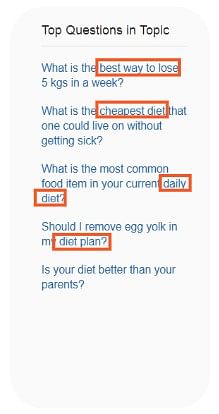
Google Search
Google suggest is a feature of the Google search engine which provides search recommendations. According to Google, “Autocomplete predictions are automatically generated by an algorithm without any human involvement based on several objective factors, including how often past users have searched for a term.”
For example, when you type in the keyword, ‘how to do keyword research,’ Google
suggests multiple keywords according to previous searches by other users.

Gif Source: Leighton Interactive
Wikipedia
Wikipedia is a vast platform for content where you can find relevant keywords easily. The meta description and the first paragraph of any Wikipedia content has a lot of relevant keywords that you can use.
Here are some other parts of the Wikipedia content where you can find relevant keywords:
- Wikipedia Contents section
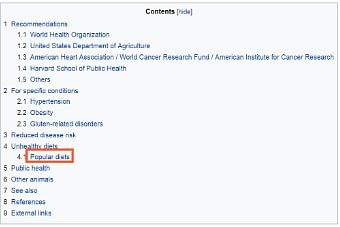
- See also section
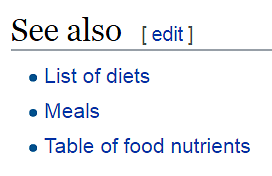
- References section

- Google your keyword with “Wikipedia” as the search query and get relevant keywords from the title tags and “People also search for” questions.
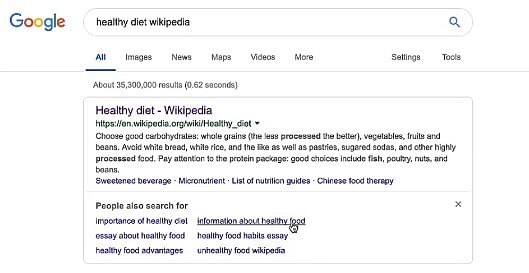
Reddit is a popular community where people post content and discuss a variety of topics within subreddits. These subreddits can help you find relevant keywords with high search volume.
Keyworddit is a popular tool that gives you the average monthly searches for a keyword on Reddit. If you type in a keyword in Keyworddit, it will extract keywords from a relevant subreddit and give related terms with their search volumes.
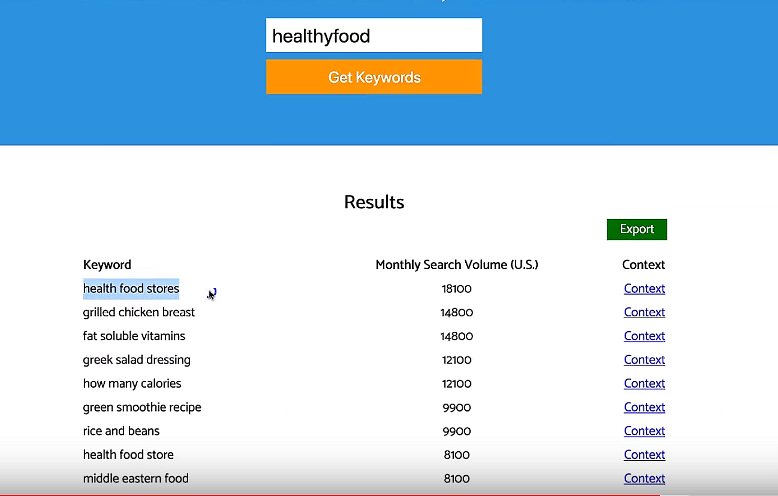
Master the many facets of SEO, including keyword management and research with the SEO Training Course. Check out the course preview now!
Keyword Clustering
Keyword clustering is the practice of clustering keywords into content themes that are relevant to each page of the website.
For example, we can group the keywords related to ‘How does SEO work’ under one cluster and the keywords related to ‘SEO best practices’ under another cluster.

Both of these clusters share a core topic with related subtopic keywords, which boost your chance of ranking well.
Here are some additional points to remember while doing keyword research:
- Stay up-to-date on industry news
- Brainstorm ideas and identify a list of keywords that are relevant to your business
- Determine the keywords that your competitors are ranking for
Now that you have a fair idea about keywords and how to do keyword research, here are some tools that can help you with your keyword research demands.
Tools for Keyword Research
Keyword research tools are essential for finding the best keywords. Some of the best tools to help you get things done quickly are:
- Google Keyword Planner
- Semrush
- Keyword Tool
- Moz
- SE Ranking SEO Analysis Tool
That’s a Start, Now Get Certified!
When it comes to keyword research, finding the right keywords can be a challenge. Rather than guessing randomly and hoping for the best, you can leverage several courses that will help you master these tools quickly. Simplilearn’s Advanced Search Engine Optimization (SEO) course will help you gain expertise about the many facets of SEO, including the process of keyword research and management.

